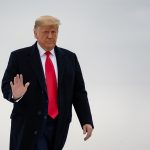President Trump’s face-to-face meeting with Chinese leader Xi Jinping in Busan this week was a consequential moment that proved America will not cower from confronting bad actors who threaten global stability. The sit-down brought together two of the world’s most powerful leaders for what both sides called “in-depth communications” on strategic issues, and it finally put the world’s attention where it belongs — squarely on Beijing’s role in enabling chaos abroad.
The headline out of the summit was tough, transactional diplomacy: the president announced a trimming of tariffs and secured a commitment from China to delay its rare-earth export restrictions while restarting purchases of U.S. soybeans and stepping up cooperation on fentanyl flows. Those are real wins for American farmers, manufacturers, and families crushed by the drug crisis, and they reflect a president who prefers deals that strengthen America rather than shrill sermons from the sidelines.
Conservative voices like Bill O’Reilly rightly pointed out on Finnerty that Trump is using this leverage to demand Beijing stop enabling America’s adversaries — specifically Putin’s war machine and Iran’s regional aggression. That line of thinking is straightforward: if China wants the benefits of trade with the U.S., it cannot keep propping up regimes that fund terror, destabilize Europe, or threaten free nations. The world cannot survive forever on the left’s moralizing; it needs clear pressure and consequences.
Xi now faces a stark choice: continue cozying up to dictators and risk American markets and sanctions, or lean toward stable commerce with the free world and be rewarded with business and predictability. Trump’s approach — unapologetically tough, but open to mutual deals — forces that choice and puts the onus on Beijing to prove its intentions. This is the kind of statecraft that actually defends liberty and American livelihoods, not the impotent lecturing we saw from the last administration.
Make no mistake: the work is not done. The meeting fixed some immediate trade fireworks, but critical tech and national-security issues remain unresolved and will require American resolve to enforce. If China wavers, the administration must be ready to follow through with tariffs, export controls, and targeted financial measures — the bargaining chip is leverage, and Trump has already shown he knows how to use it.
Patriots should welcome a president who treats China like the rival it is while still keeping the door open for deals that reward American workers. Bill O’Reilly’s blunt framing — that Trump wants China to stop enabling Putin and Iran — captures the essence of a smart, results-driven foreign policy that puts America first. Hardworking Americans expect their leaders to be fearless in defense of freedom; this Busan meeting was a step in that direction and a reminder that strength plus negotiation beats weakness every time.




